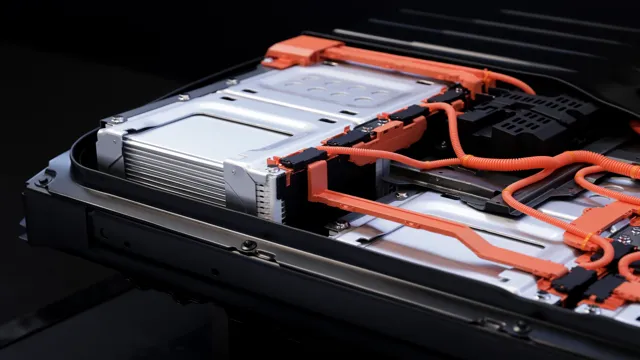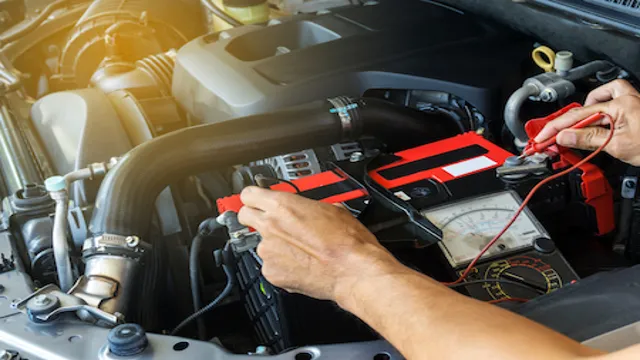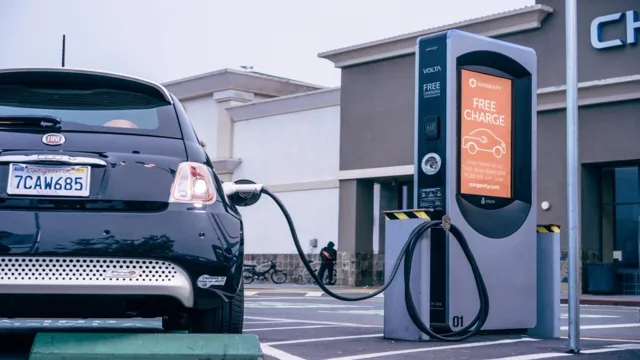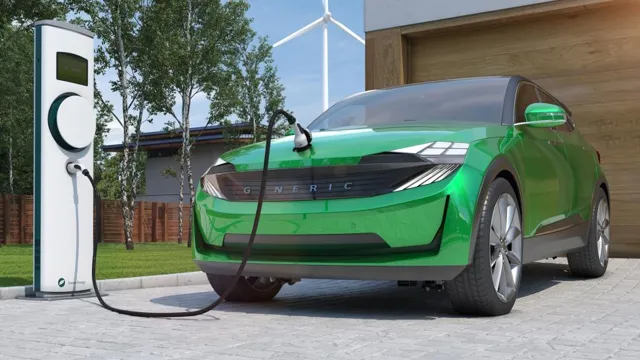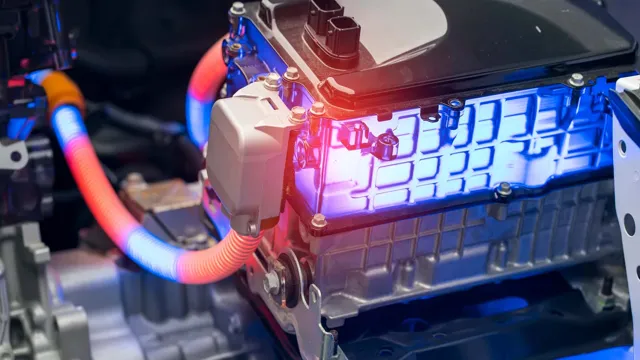Are Electric Cars Really Sustainable? A Closer Look at Battery Wasting and Its Environmental Impact
As more people switch to electric cars, the question of battery waste arises. Electric car batteries have a limited lifespan, and as they age, their performance and capacity decline. This can lead to range anxiety and frustration for electric car owners.
But why does battery wasting happen, and what can be done to prevent it? Battery wasting happens due to a combination of factors, including temperature, charging patterns, and usage habits. High temperatures can accelerate the degradation of the battery, while frequent fast charging can also have an impact on its lifespan. Additionally, heavy usage, such as frequent long-distance trips, can put more strain on the battery and cause it to deteriorate faster.
To prevent battery wasting, electric car owners can take several steps. First, it’s important to avoid exposing the battery to extreme temperatures, both hot and cold. Regular maintenance checks can also help identify any potential issues early on.
Additionally, charging habits can play a significant role in battery health. Opting for slower, more gentle charging methods can help prolong the life of the battery. While battery wasting may be a concern, it’s important to remember that electric cars still offer many benefits over traditional gasoline-powered vehicles.
Their lower emissions and lower cost of ownership make them an attractive option for many drivers. By taking steps to prevent battery wasting, electric car owners can enjoy their vehicles for many years to come.
Causes of Battery Wasting
Battery wasting in electric cars can be caused by a variety of factors. One of the most significant causes is the frequency of fast charging. Although fast charging is convenient, it places a lot of strain on the battery, leading to faster degradation.
Another factor that contributes to battery wasting is extreme temperatures. High temperatures can accelerate the breakdown of battery components, leading to diminished performance and overall lifespan. Similarly, extremely low temperatures can reduce the efficiency of the battery, leading to reduced driving range and poor overall performance.
Poor driving habits such as frequent hard braking and rapid acceleration can also cause battery wasting. It is essential to be mindful of these factors and find ways to mitigate their impact to ensure the longevity and performance of your electric car’s battery. By adopting good driving habits, avoiding extreme temperatures and fast charging, and properly maintaining your vehicle, you can extend your battery’s lifespan and performance.
Overcharging and Undercharging
When it comes to battery wasting, overcharging and undercharging are two of the most common causes. Overcharging your battery can lead to excessive heat and can significantly reduce its lifespan. Undercharging, on the other hand, can cause the battery to lose its ability to hold a charge over time.
Both of these scenarios can ultimately result in the need for a replacement battery sooner than anticipated. The key to preserving your battery’s longevity is to avoid overcharging and to ensure that your battery is charged to its recommended capacity regularly. This will not only extend the life of your battery but also ensure that your device is always ready to go when you need it.
So, make sure to take care of your battery and avoid overcharging and undercharging at all costs.

Temperature Extremes
Battery wasting can occur due to various factors, including temperature extremes. When exposed to high temperatures, your battery can start to deteriorate quickly. The same goes for extremely low temperatures, which can cause the battery’s chemical reaction to slow down, leading to a decrease in its performance.
Additionally, temperature fluctuations can cause the battery to expand and contract, which can damage its internal structure and shorten its lifespan. To prevent your battery from wasting due to temperature extremes, keep it away from direct sunlight and avoid exposing it to freezing temperatures. It is also advisable to keep your device in a cool and dry environment, as this can help regulate its temperature and prolong the battery’s life.
Taking simple steps to protect your battery from temperature extremes can help you avoid the hassle and expense of a premature replacement.
Vehicle Age and Maintenance History
One of the main causes of battery wasting in vehicles is their age and maintenance history. Over time, especially if the vehicle is not properly maintained, the battery’s performance can significantly decrease and its lifespan can shorten. As batteries age, their capacity to hold a charge decreases, leading to more frequent recharging and potential failure.
Additionally, if the vehicle’s electrical system is not functioning correctly or if there is excessive corrosion on the battery terminals, the battery can drain faster and eventually die. Regular maintenance, such as checking the battery and electrical system during routine oil changes or tune-ups, can help prevent premature battery failure and prolong its lifespan. It’s important to keep in mind that even with proper maintenance, batteries eventually wear out, and may need to be replaced after a certain number of years or mileage.
So, if you’re experiencing frequent battery issues, it may be time for a replacement.
Effects of Battery Wasting
Battery wasting in electric cars can have a significant impact on their performance and longevity. As the battery degrades over time, it may not hold as much energy, leading to shorter driving range and increased charging times. This can be frustrating for drivers who rely on their electric cars for daily commutes or long distance travel.
Additionally, battery wasting can also negatively impact the resale value of electric cars, as potential buyers may be hesitant to purchase a vehicle with a degraded battery. To mitigate the effects of battery wasting, it’s important to properly maintain and care for the battery, including regular charging and avoiding extreme temperatures. As technology continues to improve, it’s also likely that future electric car batteries will have longer lifespans and improved performance.
Reduced Driving Range
One of the most significant impacts of battery wasting is the reduced driving range of electric vehicles. As a battery degrades, it loses its ability to hold a charge, meaning it can’t power the car for as long. This can be a real headache for EV owners who rely on their car for commuting or long road trips.
It’s crucial to keep an eye on your battery’s health and take steps to prolong its life, such as avoiding excessive heat and charging the battery to only 80% capacity. Although battery wasting is an inevitable part of EV ownership, taking proper care of your battery can help minimize its effect on your driving range. So, next time you hit the road with your electric vehicle, remember to take care of your battery and enjoy the ride without worrying about your range.
Increased Charging Time and Cost
Battery wasting can have significant consequences, including an increase in charging time and cost. As the battery capacity deteriorates, it takes longer to charge, and the cost of charging also goes up. This is because the charger needs to work harder to fill up the battery, consuming more electricity.
Additionally, batteries that are nearing the end of their lifespan tend to discharge faster, lasting for fewer hours than when they were new. If you notice your device taking longer to charge or running out of juice quicker than usual, it may be time to replace the battery. Swapping out the old battery for a new one can not only improve the charging time but also save you money in the long run.
So, don’t wait until your battery has completely given up. Take proactive measures to extend its lifespan and ensure your device always has enough power to keep you connected.
Preventing Battery Wasting
Battery wasting is a major concern for electric car owners. With the increasing popularity of electric vehicles, it’s important to take steps to prevent the battery from wearing out too quickly. One way to do this is by avoiding fast charging whenever possible.
Fast charging puts a lot of stress on the battery and can cause it to degrade faster over time. Another way to prevent battery wasting is by keeping the battery at a moderate temperature. Extreme hot or cold temperatures can also damage the battery and reduce its lifespan.
Regular maintenance such as checking the tire pressure, keeping the brake pads in good condition, and avoiding carrying unnecessary weight can also help keep the battery healthy. By taking these simple steps, electric car owners can keep their batteries running efficiently and extend their overall lifespan.
Regular Maintenance and Inspections
Regular maintenance and inspections are critical to prevent battery wasting. Keeping your battery in good condition can save you money and extend the life of your vehicle. Regularly check the battery terminals for corrosion or loose connections and clean them if necessary.
Make sure to check the electrolyte level in your battery and top it off with distilled water if needed. In addition, keep an eye out for any signs of battery wear such as slow cranking or dim headlights. When storing your vehicle for an extended period, it’s essential to disconnect the battery to prevent it from losing charge.
Remember that neglecting proper battery maintenance can result in a shortened life span, costly repairs, and unexpected breakdowns. So, take care of your battery, and it will take care of you!
Avoiding Extreme Temperatures
When it comes to battery life, extreme temperatures can take a real toll. Whether it’s bitterly cold or scorching hot outside, these weather conditions can drain a battery faster than normal. To prevent this from happening, it’s best to keep your device in a room-temperature environment as much as possible.
This means avoiding leaving it in direct sunlight or a freezing car overnight. Similarly, if you plan on storing your device for a long time, it’s important to keep it at a moderate temperature so that the battery doesn’t degrade over time. Think of it like your own body – you wouldn’t want to sit in a sauna or go for a dip in the Arctic Ocean, so don’t subject your device’s battery to those extremes either.
By taking a few simple steps to avoid extreme temperatures, you can help ensure your device’s battery lasts as long as possible.
Optimizing Charging Habits
Optimizing charging habits is essential in preventing battery wasting, as charging patterns have a significant impact on battery performance. The most effective way to optimize battery charging habits is to focus on a balanced approach. This means avoiding overcharging batteries, which can damage battery life, and ensuring that batteries are not discharging completely before charging them again.
It is also important to use a charger that has the correct charging voltage and amperage for your specific device, as well as to unplug devices once they are fully charged. Additionally, it is recommended to avoid charging your device overnight, as this can cause batteries to overheat, which can lead to damage. By following these tips, you can ensure that your battery stays healthy and lasts longer, which can save you money in the long run.
Conclusion: Protect Your Electric Car Battery
In conclusion, battery wasting in electric cars is like leaving your phone plugged in overnight – sure, it might seem like a good idea for a quick boost, but in the long run, your battery life will suffer. So, let’s charge our cars smartly and efficiently, and give our batteries a break. After all, we don’t want to be left stranded in the middle of nowhere with a dead battery – that’s a shock nobody wants to experience!”
FAQs
How long does the battery of an electric car last before it needs to be replaced?
The lifespan of the battery greatly depends on the make and model of the electric car, as well as its usage. On average, most electric car batteries last between 8 and 10 years before they need to be replaced.
What causes the battery of an electric car to degrade over time?
There are several factors that can contribute to battery degradation in electric cars. These include high temperatures, frequent fast charging, and deep discharges. Additionally, the amount of charging cycles the battery goes through can also impact its overall lifespan.
Are there any ways to prolong the lifespan of an electric car battery?
Yes, there are several steps electric car owners can take to extend the lifespan of their batteries. This includes avoiding frequent fast charging, parking in shaded areas to reduce exposure to high temperatures, and only charging the battery when it is below 80% capacity.
Can the battery in an electric car be recycled?
Yes, the batteries in electric cars are recyclable. In fact, most electric car manufacturers have programs set up to recycle old batteries once they have reached the end of their useful lifespan. These recycled materials can then be used to create new batteries or other products.
